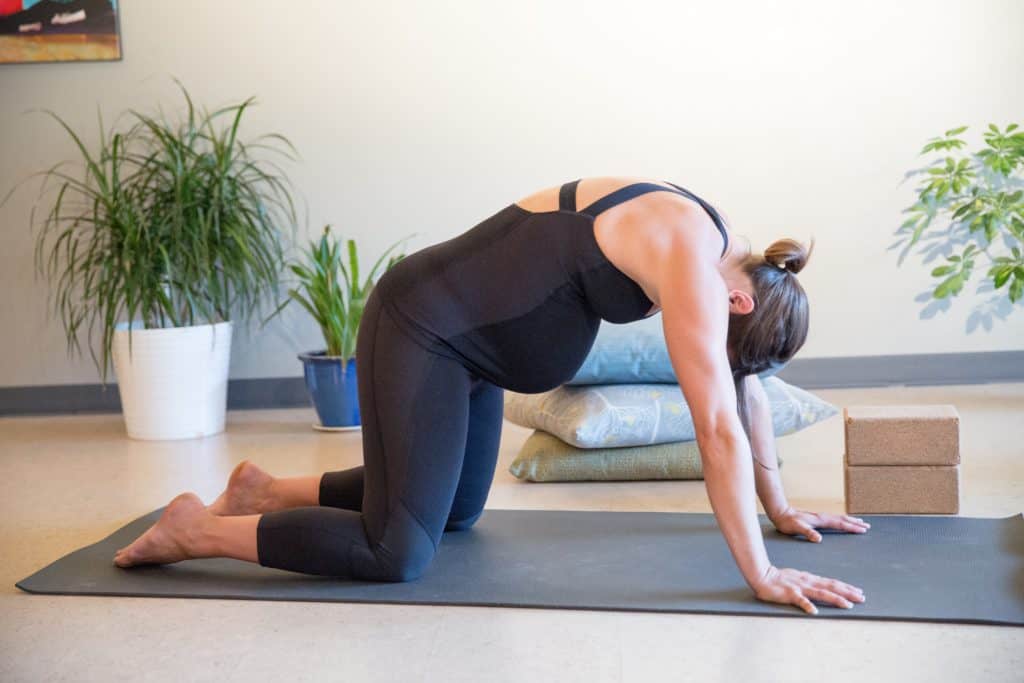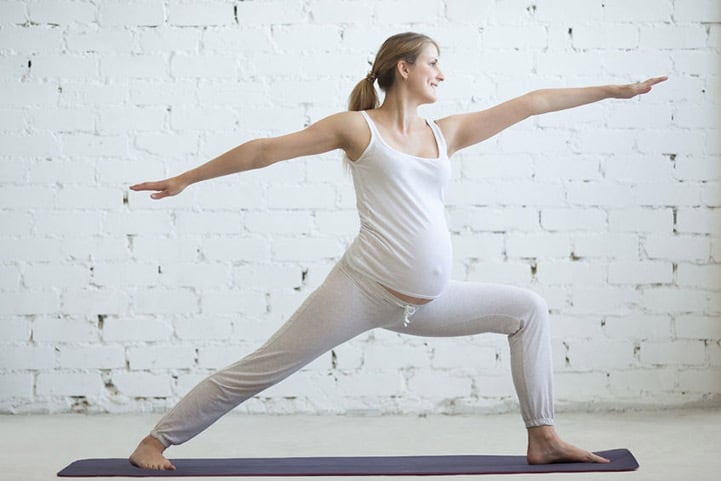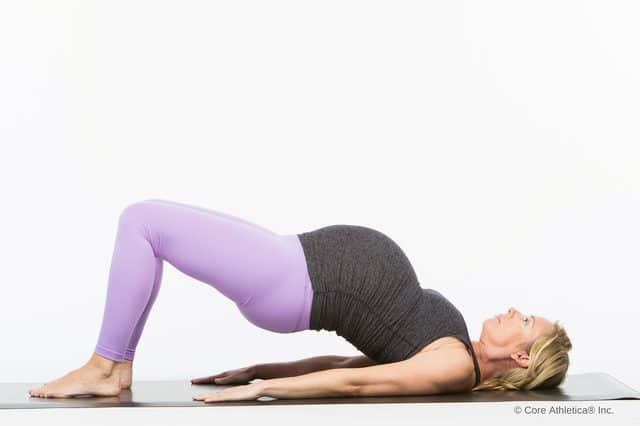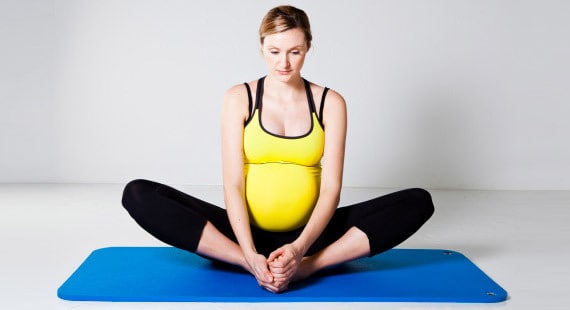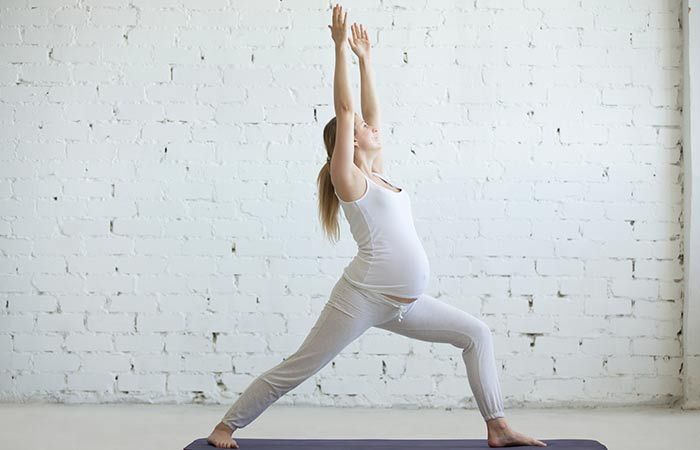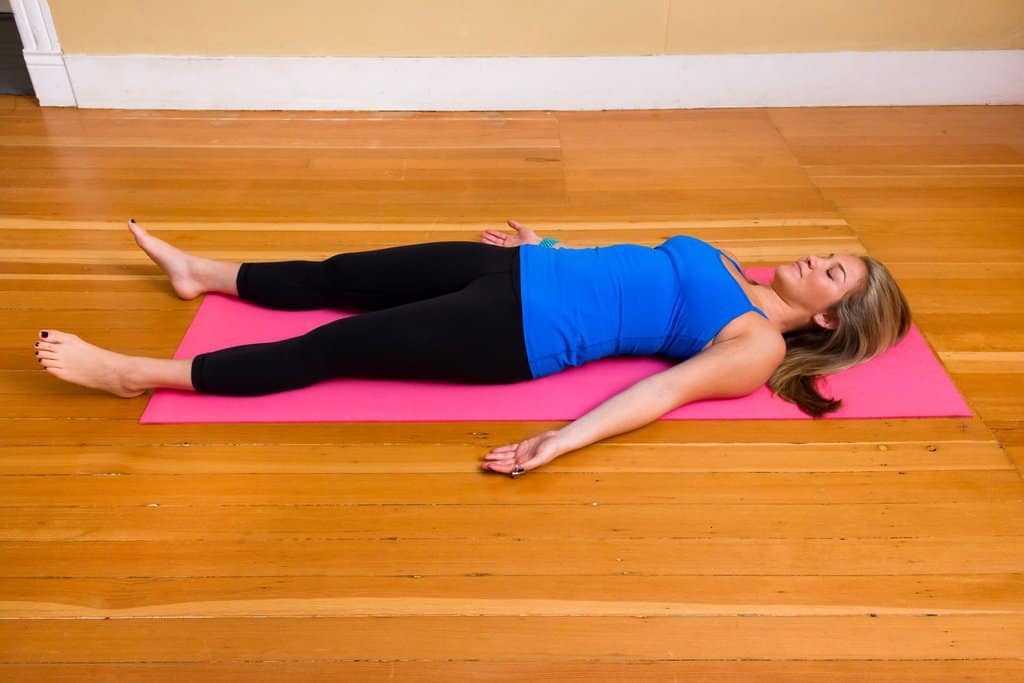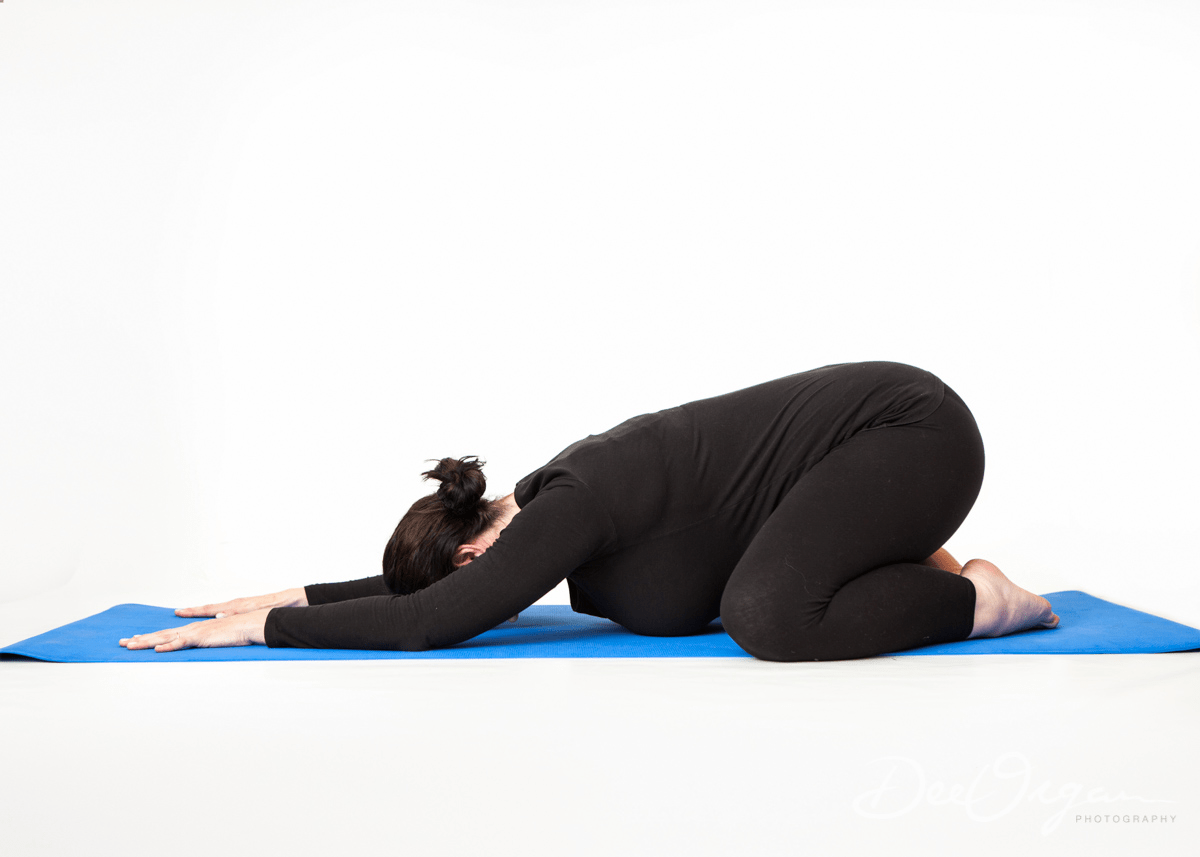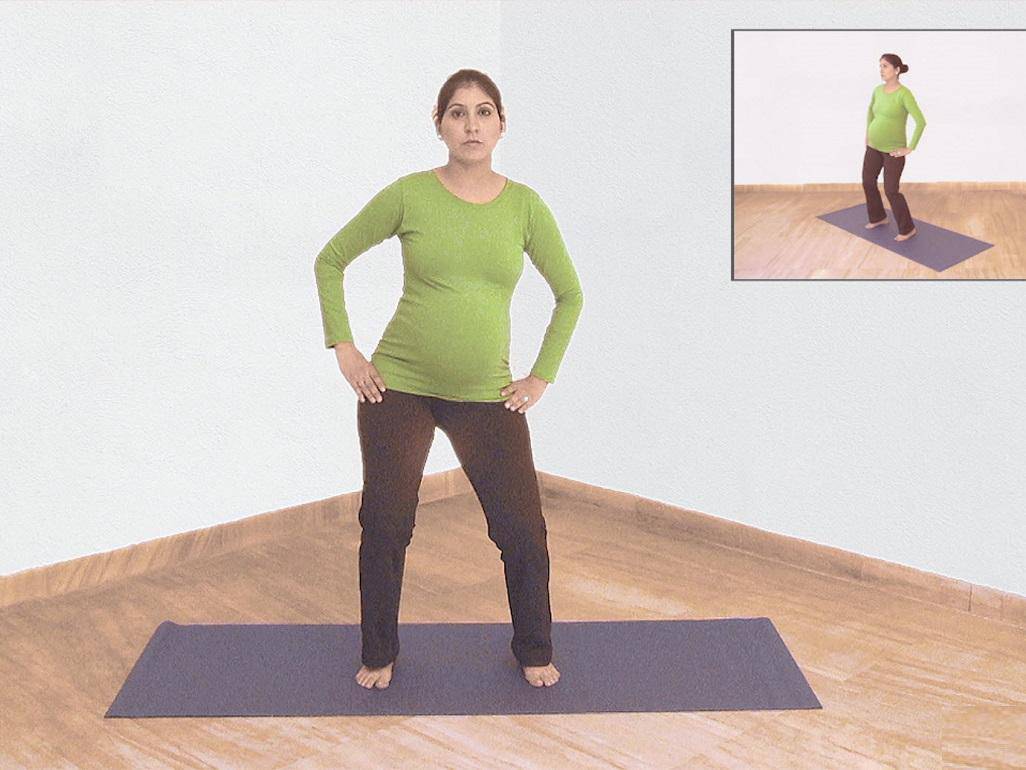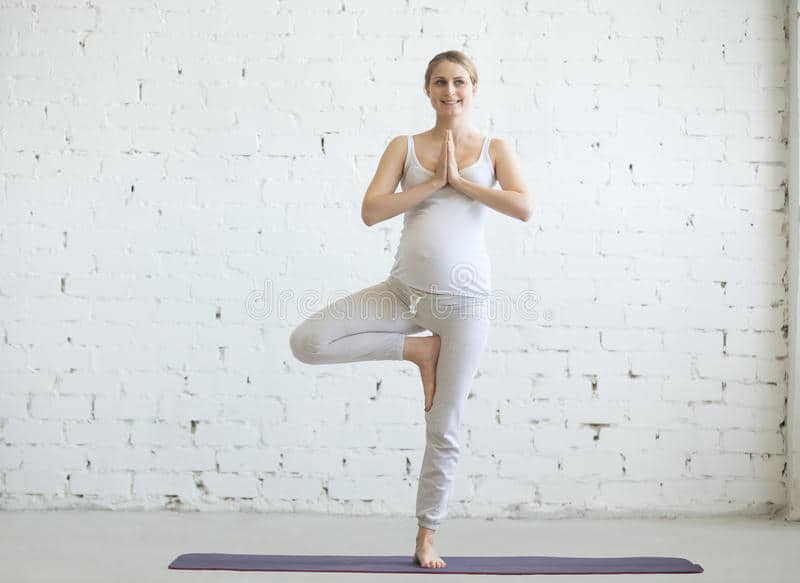Yoga during pregnancy helps you to create space for both your baby and your internal organs. However, make sure that you only do what feels right and works, avoid muscle strains and extreme pressure exercises. There are plenty of yoga techniques that can help you to prepare for labor in the 3rd trimester. Before you try out yoga, make sure you talk to your doctor. This way, you may know the do and don’t during this stage. The following are some of the common yoga exercises to try out during the third trimester.
1. Birth prep exercises
This mainly entails simple exercise designed to reduce pains and aches and can as well as help position the baby in a good pelvic alignment. Include this technique in your workout rest brakes, warm-up, and as part of your daily poses. Here’s an example of it:
2. Cat cow
This is a great pose for lengthening your spine and strengthen your core muscles.[1] This pose is a great technique for all pregnancy stages. It will help strengthen your belly as the pregnancy continues to grow. This asana also relieves the back and allow a better circulation of spinal fluids and blood. Practice belly breathing when performing this pose. It will aid in calming your mind and reducing morning sickness. It should be done about 5 times for best results.
3. Warrior II
This technique is great for strengthening your core and legs and as well as lengthen your spine. Even though this technique is a little bit challenging, it is said to help alleviate backaches during pregnancy.
4. Bridge pose
This pose is convenient if you want to open up your hips and strengthen your glutes, core, and hamstrings.[2] Also, it can be practiced in all the trimesters. Begin on the side and roll to the back as you move your body into a bridge pose. This helps avoid stressing your rectus abdominals. Avoid this exercise if you feel uncomfortable on your back.
5. Cobblers pose (Baddha Konasana)
This technique is said to improve the health of the reproductive system.[3] During pregnancy, it aids in opening up the pelvis, therefore ensuring an easy and fast labor. It is also said to calm the mind and improve blood circulation. This yoga practice can be performed as follows:
Sit on a mat and stretch out your legs. Fold your knees and bring your feet at the center. Then straighten your back. Using your palms hold your feet for a few seconds. Release. Repeat this about 4 times.
6. Warrior I
This technique helps you explore your upper body. It helps to open up your chest and strengthen your legs. This technique helps restore the health of your spine and help make space for the growing uterus. Also, it helps your mind relax and stay focused and maintain balance. It can be performed as follows;
Place your feet apart in a hip-width position. Pivot on the left foot. Make your right foot to face forward. Lower the pelvis, then assume a lunge. Look forward and lift your arms above your head. Hold that position as long as possible. Release the pose. Repeat the process with the left foot forward.
7. Corpse pose
This technique aims at relaxing your body and mind.[4] It boosts your energy instantly and hence it’s convenient for battling any fatigue during the pregnancy. Also, it helps in fighting off any side effects of pregnancy such as pain, morning sickness, and nausea. This pose can be performed as follows:
Lie on your back. Let your palms rest beside you while facing upwards. Close your eyes and then relax- your arms should be alongside your body. Breathe.
8. Spiraling movement
This entails moving your pelvis in circular motions and moving your hips. These movements help to massage down the baby’s head onto the cervix. Also, these movements helps you keep your pelvis mobile and relaxed while loosening your muscles and ligaments. You may consider using a fitness ball to help in the movements.
9. Child’s pose
This is a resting pose. It helps to focus on your breath, breathe more deeply, and also it’s a good position to rest between labor contractions.[5] This is a great position that will help you find peace and promote a healthy and a happy pregnancy. It’s safe for all trimesters. Relax and move your knees apart, then rest your head on your fists, hand, or on the floor. You should avoid this position if your pubic symphysis is sore or open. Relax in this position, eyes closed.
10. Chanting
Making your own sounds during pregnancy and birth is a powerful way to regulate your breathing, it enables you to focus and relax as you deal with the pain that is associated with pregnancy and labor. Practicing voice sounds can help you open up and have an easier and more comfortable labor. You can do this as follows:
Sit comfortably. Close your eyes. Placing your index fingers on the lobes of your ears, take a deep breath. Exhaling slowly, make gentle humming sounds. Do this 5 to 10 times. You can also do this while lying down with arms by the side of the body.
11. Standing hip rotations
This moves will help strengthen your pelvis as well as relax.[6] You can do this as follows:
Stand with feet wide apart but comfortable. Slightly bend your knees. Place your hands on your hips and rotate your hips. Try to keep your upper body still. Focus on rotating the hips and the belly. Inhale while moving your hips forward and exhale while moving them backward. Do this as many times as you wish.
12. Tree pose
This is a balancing technique. It helps strengthening your legs and core. It also improves posture and alleviates back pain. How to perform this pose:
Feet on the ground, shift your weight forward and backward until you gain balance. Shift your weight to one foot. You can also lift one of your foot to your ankle to gain balance. Bring the foot higher to your inner thigh. Put your hands in a prayer position. Hold this for 5 breaths. You can also raise the arms above your head. Repeat with the other leg.
This technique is safe for all stages during pregnancy.
13. Meditation
Over the years, meditation has been used to manage a lot of conditions such as depression, stress, anxiety, and much more. During the last trimester of your pregnancy, meditation can help to move gracefully as you approach labor. It will help you ascertain a more peaceful state of mind by avoiding stress and anxiety especially if you are giving birth for the first time. Develop the habit of practicing meditation on a daily basis.
Guidelines for pregnancy yoga
There are some poses, however, that you should avoid while pregnant. They include plank cross, locust pose, boat pose, plow pose, and much more. Consult with your doctor on the best exercises. Here’re some guidelines you need to know before practicing yoga:
- Do what feels right. Starting yoga especially in your last trimester can be challenging while it’s really important in preparing both your mind and body for labor and pregnancy-related demands. To avoid accidents or extreme positions, you should practice yoga poses with the guidance of a trained tutor. When choosing which yoga poses to perform, listen to your body and do what you feel comfortable doing. Since all women do not have the same challenges and experience during pregnancy, avoid doing poses that your friends are doing if they don’t feel right to you.
- Do fewer poses. In case you are into physical exercises, it’s important to soften your training to avoid harming both your body and the health of the baby. Also, avoid long hours of training. You can talk to your doctor to guide you on the most convenient techniques to practice. During pregnancy, your body tends to have higher temperatures and it may feel hotter than usual. It’s recommended to avoid practicing yoga in a heated environment. Perform these techniques in a suitable environment with fresh and adequate ventilation.
- Don’t get distracted. Reduce distraction while practicing yoga. For instance, a telephone can interfere with proper meditation.
- Stay comfortable. Wear loose and comfortable clothing.
- Do not eat before yoga. Practice yoga on empty stomach. Most techniques are effective in the morning.
- Always warm up for a few minutes. You can walk around, loosen your joints, move your limbs and warm up your muscles.
- Stay hydrated. Make sure that you are well hydrated especially when practicing challenging and sweaty poses. Dehydration, especially during the last trimester of your pregnancy can have severe sequences such as false early labor or preterm labor. Yoga techniques are the best kinds of workouts to try out during pregnancy. Especially if practiced together with mild exercises such as walking, it can help the expectant mother deal with both emotional and physical changes with ease. Also, it will help mothers feel relaxed and stay in shape during the last trimester of pregnancy. Featured photo credit: Pexels via pexels.com
